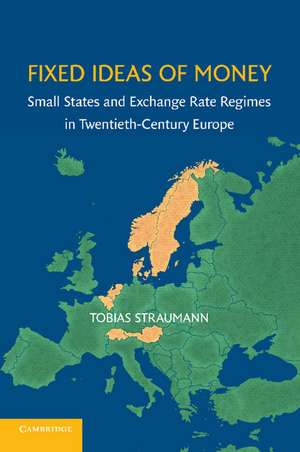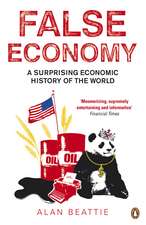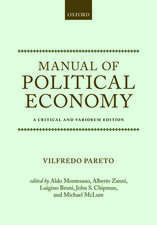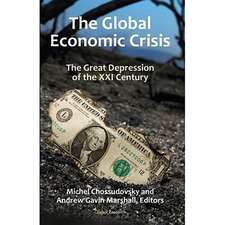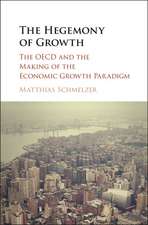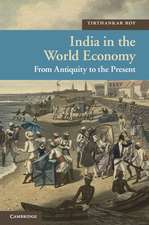Fixed Ideas of Money: Small States and Exchange Rate Regimes in Twentieth-Century Europe: Studies in Macroeconomic History
Autor Tobias Straumannen Limba Engleză Paperback – 29 ian 2014
| Toate formatele și edițiile | Preț | Express |
|---|---|---|
| Paperback (1) | 325.55 lei 6-8 săpt. | |
| Cambridge University Press – 29 ian 2014 | 325.55 lei 6-8 săpt. | |
| Hardback (1) | 758.35 lei 6-8 săpt. | |
| Cambridge University Press – 13 iun 2010 | 758.35 lei 6-8 săpt. |
Din seria Studies in Macroeconomic History
-
![Teach Your Kids about Countries [Vol 5]: Version Adaptada Al Castellano Actual Por Rafael Antunez y Raul Alonso](https://i4.books-express.ro/bs/9781480268197/teach-your-kids-about-countries-vol-5.jpg) Preț: 61.51 lei
Preț: 61.51 lei -
 Preț: 167.96 lei
Preț: 167.96 lei -
 Preț: 95.31 lei
Preț: 95.31 lei -
 Preț: 40.48 lei
Preț: 40.48 lei -
 Preț: 53.96 lei
Preț: 53.96 lei -
![Teach Your Kids about Countries [Vol13]: Version Adaptada Al Castellano Actual Por Rafael Antunez y Raul Alonso](https://i2.books-express.ro/bs/9781480268272/teach-your-kids-about-countries-vol13.jpg) Preț: 61.51 lei
Preț: 61.51 lei -
 Preț: 125.81 lei
Preț: 125.81 lei -
 Preț: 64.79 lei
Preț: 64.79 lei -
 Preț: 131.58 lei
Preț: 131.58 lei -
 Preț: 86.92 lei
Preț: 86.92 lei -
 Preț: 63.20 lei
Preț: 63.20 lei - 9%
 Preț: 592.73 lei
Preț: 592.73 lei -
 Preț: 95.96 lei
Preț: 95.96 lei -
 Preț: 238.93 lei
Preț: 238.93 lei -
![Teach Your Kids about Countries [Vol 25]: Version Adaptada Al Castellano Actual Por Rafael Antunez y Raul Alonso](https://i0.books-express.ro/bs/9781480268401/teach-your-kids-about-countries-vol-25.jpg) Preț: 61.51 lei
Preț: 61.51 lei -
 Preț: 59.67 lei
Preț: 59.67 lei -
 Preț: 54.03 lei
Preț: 54.03 lei -
 Preț: 92.61 lei
Preț: 92.61 lei -
![Teach Your Kids about Countries [Vol4 ]: Version Adaptada Al Castellano Actual Por Rafael Antunez y Raul Alonso](https://i3.books-express.ro/bs/9781480268180/teach-your-kids-about-countries-vol4.jpg) Preț: 61.51 lei
Preț: 61.51 lei -
 Preț: 135.03 lei
Preț: 135.03 lei -
 Preț: 75.99 lei
Preț: 75.99 lei -
 Preț: 104.33 lei
Preț: 104.33 lei -
 Preț: 130.65 lei
Preț: 130.65 lei -
 Preț: 201.11 lei
Preț: 201.11 lei -
 Preț: 83.38 lei
Preț: 83.38 lei -
 Preț: 56.92 lei
Preț: 56.92 lei -
 Preț: 177.10 lei
Preț: 177.10 lei -
 Preț: 62.62 lei
Preț: 62.62 lei -
 Preț: 74.52 lei
Preț: 74.52 lei -
 Preț: 123.49 lei
Preț: 123.49 lei -
![Teach Your Kids about Countries [Vol 17]: Version Adaptada Al Castellano Actual Por Rafael Antunez y Raul Alonso](https://i2.books-express.ro/bs/9781480268326/teach-your-kids-about-countries-vol-17.jpg) Preț: 61.51 lei
Preț: 61.51 lei -
![Teach Your Kids about Countries [Vol 22]: Version Adaptada Al Castellano Actual Por Rafael Antunez y Raul Alonso](https://i2.books-express.ro/bs/9781480268371/teach-your-kids-about-countries-vol-22.jpg) Preț: 61.51 lei
Preț: 61.51 lei -
![Teach Your Kids about Countries [Vol8]: Version Adaptada Al Castellano Actual Por Rafael Antunez y Raul Alonso](https://i2.books-express.ro/bs/9781480268227/teach-your-kids-about-countries-vol8.jpg) Preț: 61.70 lei
Preț: 61.70 lei -
 Preț: 208.23 lei
Preț: 208.23 lei -
 Preț: 96.04 lei
Preț: 96.04 lei -
 Preț: 96.45 lei
Preț: 96.45 lei -
 Preț: 46.84 lei
Preț: 46.84 lei -
![Teach Your Kids about Countries [Vol2]: Version Adaptada Al Castellano Actual Por Rafael Antunez y Raul Alonso](https://i1.books-express.ro/bs/9781480268166/teach-your-kids-about-countries-vol2.jpg) Preț: 61.51 lei
Preț: 61.51 lei -
 Preț: 55.99 lei
Preț: 55.99 lei -
 Preț: 69.21 lei
Preț: 69.21 lei -
 Preț: 72.83 lei
Preț: 72.83 lei -
 Preț: 51.11 lei
Preț: 51.11 lei -
 Preț: 88.56 lei
Preț: 88.56 lei -
 Preț: 51.36 lei
Preț: 51.36 lei -
 Preț: 78.74 lei
Preț: 78.74 lei -
 Preț: 93.90 lei
Preț: 93.90 lei - 20%
 Preț: 45.72 lei
Preț: 45.72 lei -
 Preț: 212.46 lei
Preț: 212.46 lei -
 Preț: 71.19 lei
Preț: 71.19 lei
Preț: 325.55 lei
Nou
Puncte Express: 488
Preț estimativ în valută:
62.31€ • 67.71$ • 52.38£
62.31€ • 67.71$ • 52.38£
Carte tipărită la comandă
Livrare economică 21 aprilie-05 mai
Preluare comenzi: 021 569.72.76
Specificații
ISBN-13: 9781107616370
ISBN-10: 1107616379
Pagini: 414
Ilustrații: 48 b/w illus. 25 tables
Dimensiuni: 152 x 228 x 24 mm
Greutate: 0.6 kg
Editura: Cambridge University Press
Colecția Cambridge University Press
Seria Studies in Macroeconomic History
Locul publicării:New York, United States
ISBN-10: 1107616379
Pagini: 414
Ilustrații: 48 b/w illus. 25 tables
Dimensiuni: 152 x 228 x 24 mm
Greutate: 0.6 kg
Editura: Cambridge University Press
Colecția Cambridge University Press
Seria Studies in Macroeconomic History
Locul publicării:New York, United States
Cuprins
Introduction; Part I. The Interwar Years: 1. Early divergence; 2. The return to prewar parity; 3. Fear of experiments; 4. The dissolution of the gold bloc; Part II. After Bretton Woods: 5. Fixed vs. floating; 6. Hard and soft pegs; 7. The Swiss exception; 8. Floating in the north; Conclusion.
Recenzii
'Tobias Straumann's excellent book breaks new ground. Informed by abundant research in archives and by the most recent theories from political economy, it provides an elegant and unified picture of the reasons why small nations in Western Europe have fixed their exchange rates and will prefer floating exchange rates.' Marc Flandreau, Graduate Institute of International Studies, Geneva
'Tobias Straumann has written an important and wide-ranging book that draws on history, economics, and political science to explain the central role that small states have played in shaping Europe's exchange rate arrangements.' Harold James, Princeton University
'A grand perspective on the small players of European monetary policy. This well-written, highly informative book will be a must-read for students of Europe's monetary history since 1918.' Albrecht Ritschl, London School of Economics
'After recent strains in the Eurozone, Straumann's study of how exchange rate policy developed in Europe is particularly timely. His detailed study of the experience of small states before and after the Bretton Woods era of pegged exchange rates offers a refreshing perspective on a literature that has concentrated on the larger European economies. Of particular novelty is the analysis of Switzerland, Norway, and Sweden alongside Austria, Belgium, Denmark, and the Netherlands. Straumann draws on an impressive range of contemporary sources to reinterpret the choices made by policymakers using direct evidence rather than extrapolating motives from the quantitative data. This volume will particularly attract those interested in expanding their understanding of European monetary relations and the way that smaller states engage in the global system.' Catherine Schenk, University of Glasgow
'A rich and thought-provoking study, which puts the monetary history of small European states into a new perspective. Straumann forcefully argues that size matters for monetary policy choices, for reasons far beyond the degree of economic integration.' Nikolaus Wolf, University of Warwick
'Tobias Straumann has written an important and wide-ranging book that draws on history, economics, and political science to explain the central role that small states have played in shaping Europe's exchange rate arrangements.' Harold James, Princeton University
'A grand perspective on the small players of European monetary policy. This well-written, highly informative book will be a must-read for students of Europe's monetary history since 1918.' Albrecht Ritschl, London School of Economics
'After recent strains in the Eurozone, Straumann's study of how exchange rate policy developed in Europe is particularly timely. His detailed study of the experience of small states before and after the Bretton Woods era of pegged exchange rates offers a refreshing perspective on a literature that has concentrated on the larger European economies. Of particular novelty is the analysis of Switzerland, Norway, and Sweden alongside Austria, Belgium, Denmark, and the Netherlands. Straumann draws on an impressive range of contemporary sources to reinterpret the choices made by policymakers using direct evidence rather than extrapolating motives from the quantitative data. This volume will particularly attract those interested in expanding their understanding of European monetary relations and the way that smaller states engage in the global system.' Catherine Schenk, University of Glasgow
'A rich and thought-provoking study, which puts the monetary history of small European states into a new perspective. Straumann forcefully argues that size matters for monetary policy choices, for reasons far beyond the degree of economic integration.' Nikolaus Wolf, University of Warwick
Descriere
This book analyses how seven small European countries dealt with major financial crises in the last hundred years.
